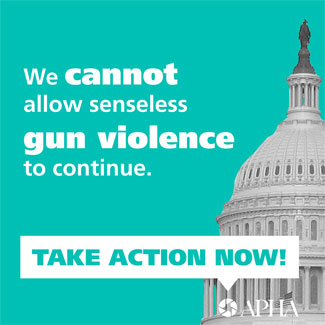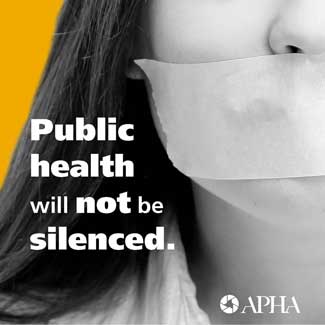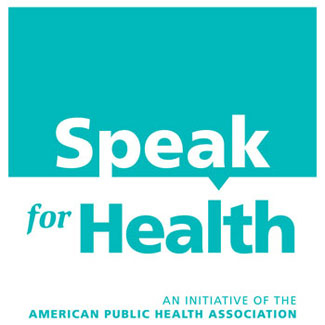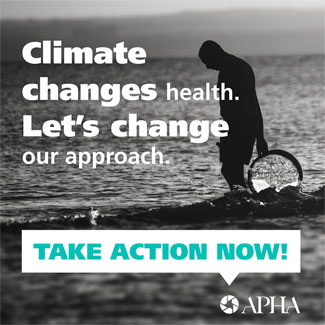Speak For Health
How can you #SpeakForHealth?
- Donate to Speak for Health and take action to defend evidence-based policies and protect the systems that keep people healthy.
- Use our state fact sheets (PDF) to advocate locally.
- Read about APHA's 2025 advocacy priorities (PDF).
- Meet with your members of Congress or their staff.
- Attend a public forum or town hall and ask your representatives about APHA priority issues. Call the district offices of your senators and representative to request a list of events near you.
- Submit an op-ed to your local paper. We have tips for writing op-eds (PDF). You can also email [email protected] if you would like to use an op-ed template on gun violence prevention, climate change or public health funding.
- Use Facebook or X to engage your members of Congress.
- Send an action alert message to your members of Congress, or call your members of Congress and use the action alert message as a phone script.
And share these images on social media to help us spread the word:
 |  |
 |  |


